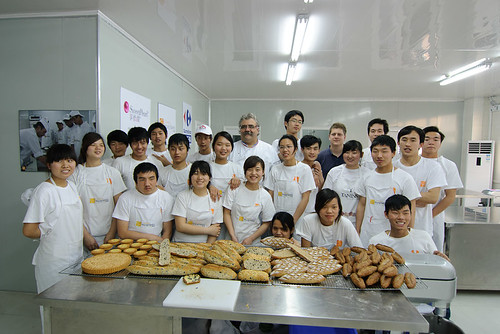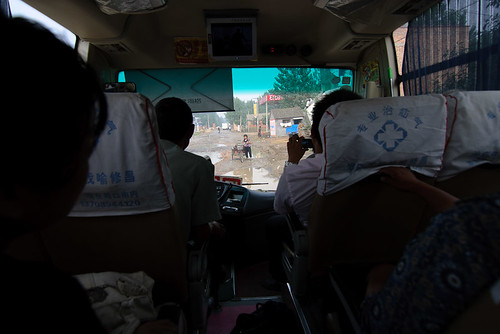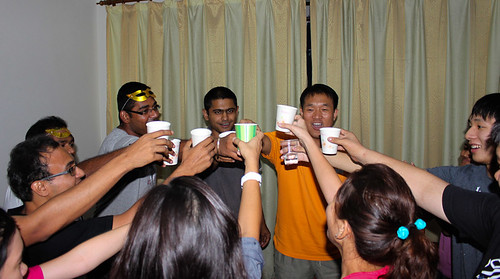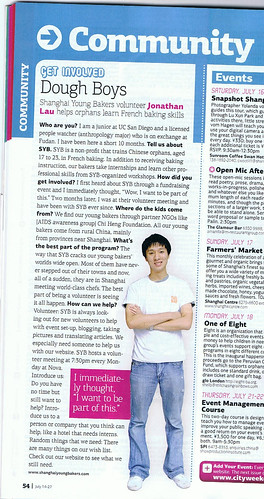Confused looks abound, whenever I tell people I am
an anthropology major. After the looks and explanation that I do not study
bones, the inevitable "what are you going to do with that?" comes
up. I imagine recruiters who look at my
resume go through the same process.
 |
| Bronislaw Malinowksi Father of Social Anthropology |
Below, are three examples of how an
anthropological framework helped me do my job:
1) Holistic
view
To be an anthropologist is to understand that
people are the sum of their parts.
Analyzing people means taking into account multiple elements such as
socio-economic status, culture and psychology.
This holistic mindset leads me to analyze data and
problems from multiple angles. I am
highly skeptical of one size fits all solutions preferring instead to tailor
solutions according to differences. With
globalization and mantras such as "think global, act local" on the
rise, a holistic mind set will only grow in importance.
In my marketing campaign for the Undergraduate
Investment Society's 7th Annual Financial Horizons Conference, I looked at the
UCSD student body holistically. This led
me to see that economic students and Rady business school students due to
factors such as age, work experience and socioeconomic status would have
different motivations for attending a finance conference. As a result, I tailored the ad copy towards
the different students in an effort to appeal to their varied motivations for
going to the conference.
2) Check
biases
Logic is thrown around a lot as the catchall
explanation for why people do or will do certain things. What people view as "logical" and
"rational" are often the result of ingrained biases, but few realize
that.
Anthropologists are in a constant and ongoing
battle to check their biases. This is
not to say that those who study anthropology have no biases, rather they are
aware of them and take it into account in their analysis. By being aware of their own bias,
anthropologists allow themselves to be open minded while interpreting data.
While studying abroad in China, I found that
checking my biases helped me discover the culture. I had a lot of baggage coming into China,
from what my family had told or rather warned me about and portrayals of China
in the American media. Being aware of
those preconceived notions, allowed me keep an open mind while experiencing the
country and led me to better understand not only Chinese culture, but also American
and Chinese diaspora culture as well.
3) Insistence
on social proof
 |
| Anthropologist hired by US Army in Afghanistan |
The study and practice of ethnographic fieldwork,
has given me the sense of mind to take all my assumptions to the field. In
addition, it has taught me how to find the relevant field site and effective
methods to extract accurate information from it.
When the Lean Startup Circle lunch club roll out
to cities across the country produced lackluster results, I took a
bootstrapping business trip to figure out what happened. Drawing on my previous fieldwork experience,
I surveyed the Los Angeles and San Diego startup scenes, which included meeting
up with organizers and entrepreneurs on order to learn what they thought would
get their community come out to lunch together.
In closing
Studying anthropology has completely changed the
way I think in a way that makes me different from most others. The anthropological mindset gives me a fresh and
arguably better way of using existing tools. When I read IDEO's profile of the
anthropologist in 10 Faces of Innovation:
"The Anthropologist is rarely stationary. Rather, this is the person who ventures into the field to observe how people interact with products, services, and experiences in order to come up with new innovations. The Anthropologist is extremely good at reframing a problem in a new way, humanizing the scientific method to apply it to daily life. Anthropologists share such distinguishing characteristics as the wisdom to observe with a truly open mind; empathy; intuition; the ability to "see" things that have gone unnoticed; a tendency to keep running lists of innovative concepts worth emulating and problems that need solving; and a way of seeking inspiration in unusual places."
I just thought to myself “YES! They get it!”
One day everybody will too.













